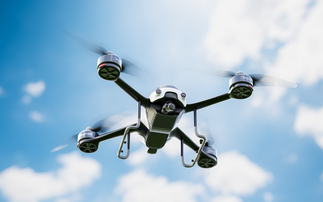
Partner Insight: Tying together a business' sustainability, financial, productivity and security goals, all through one initiative, might sound like a fanciful idea. But device lifecycle management ticks every single box, says Nick Gliddon, director of Vodafone Business UK.
If you've ever decided to purchase a new phone, you know just how tricky the choice can be, especially if it's been a while since you were last in the market.
Firstly, technology is evolving, from the handsets themselves to software developments. Then there are the cost considerations; you need to know what your priorities are for a new device and what you're willing to spend or sacrifice.
Finally, for many, sustainability is of growing importance. As a result, the refurbished market is thriving; sales having increased 83 per cent* in the last year for consumers and business, with 32 per cent of Brits owning a refurbished phone.
Now, imagine you need to undertake this process for 250 or more people. That's the task facing thousands of businesses each year, with mobile phones an increasingly vital part of day-to-day operation.
While the thought may seem daunting, the other side of the coin is that the potential benefits of a successful process can also be multiplied many times over – from productivity outcomes to cost savings to environmental impact.
Providing, that is, you adopt a comprehensive device lifecycle management service.
Creating the right environment
Sustainability is an ever-important part of most companies' business models. But, with many organisations comprising a wide-ranging footprint of different departments and ways of working, it can be tricky to implement initiatives that have an equal impact throughout the business.
For instance, some staff may travel more as part of their role, while certain office locations may be better set up than others for waste reduction or recycling.
One way employees can be kept on a level playing field however, regardless of role or location, is when it comes to their mobile devices.
This is largely because handsets can be leased in bulk. Then, upon renewal, devices can be returned, securely wiped, and resold – extending their useful life by up to five years.
Through Vodafone Business' own Device Lifecycle Management (DLM) programme, for example, 95 per cent of returned devices end up being given a second life.
As part of this, we also ensure an equivalent number of devices destined for landfill are collected in African countries and recycled sustainably in Europe.
By doing this on a one-to-one basis, we can ensure precious minerals are returned into the value chain, reducing electronic waste at a time when 62 million tonnes is produced annually.
What's more, for every leased device, we offset its carbon footprint during manufacture and across the rental period, providing half-yearly reports to demonstrate businesses' environmental contribution.

Reducing impact, retaining output
Better yet, sustainability no longer means sacrificing other priorities.
For cost-conscious businesses, leasing mobile handsets also has financial benefits. From removing the need to tie up funds as part of outright purchases to being able to write off leasing as an operating cost against profits, it can literally pay to take this route.
Meanwhile, Vodafone's Trade-In programme and The Great British Tech Appeal allow businesses to realise any residual value in old devices, contributing to both social good and the circular economy in the process.
Productivity isn't at risk either, since leasing means it's never been easier to keep equipment up to date. In turn, staff can retain the best tools for the job at hand. This is hugely important in today's age of hybrid and remote work, with employees increasingly reliant on technology that works as well at home as it does in the office.
Equally, companies need hardware and processes that provide the highest security possible. Which is why, at the end of device lease periods, Vodafone securely wipes any data before restoring handsets to their original settings.
A lifecycle lens
When it comes to purchasing new devices – whether for yourself or your business – it makes sense for your own experience of the process to take centre stage.
And why not, given you may either be excited to buy a new handset for yourself or, equally, anxious at the thought of purchasing several hundred for your staff.
Next time you're faced with this task, however, try flipping the task on its head by first considering the experience, and lifecycle, of the phone itself – rather than your own.
Think about where the handsets have come from, how they'll be used, and what will happen to them after they're no longer needed.
This is the end-to-end approach that Vodafone takes when it comes to our DLM solutions. It's one way that we're helping to build a digital society that does not come at the cost of our planet. And I'm confident it's one that will improve your own, and your business', experience.
Nick Gliddon is director of Vodafone Business UK.
*Based on Vodafone increase from FY23 refurbished phone sales to FY24 refurbished phone sales






